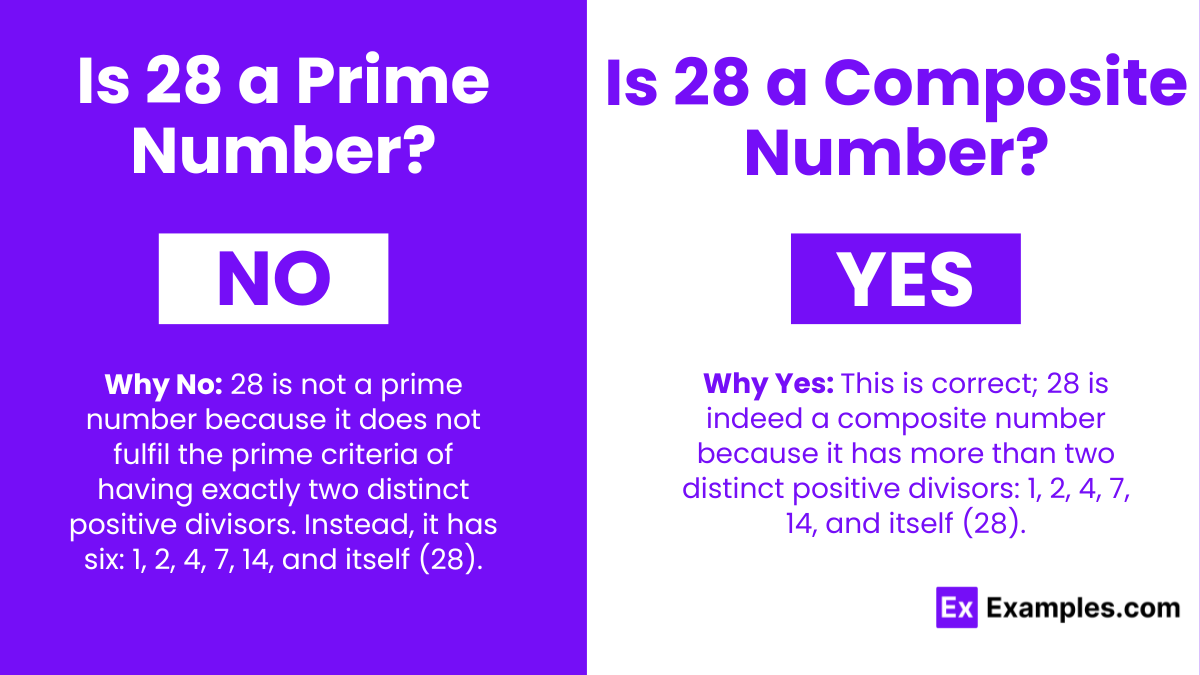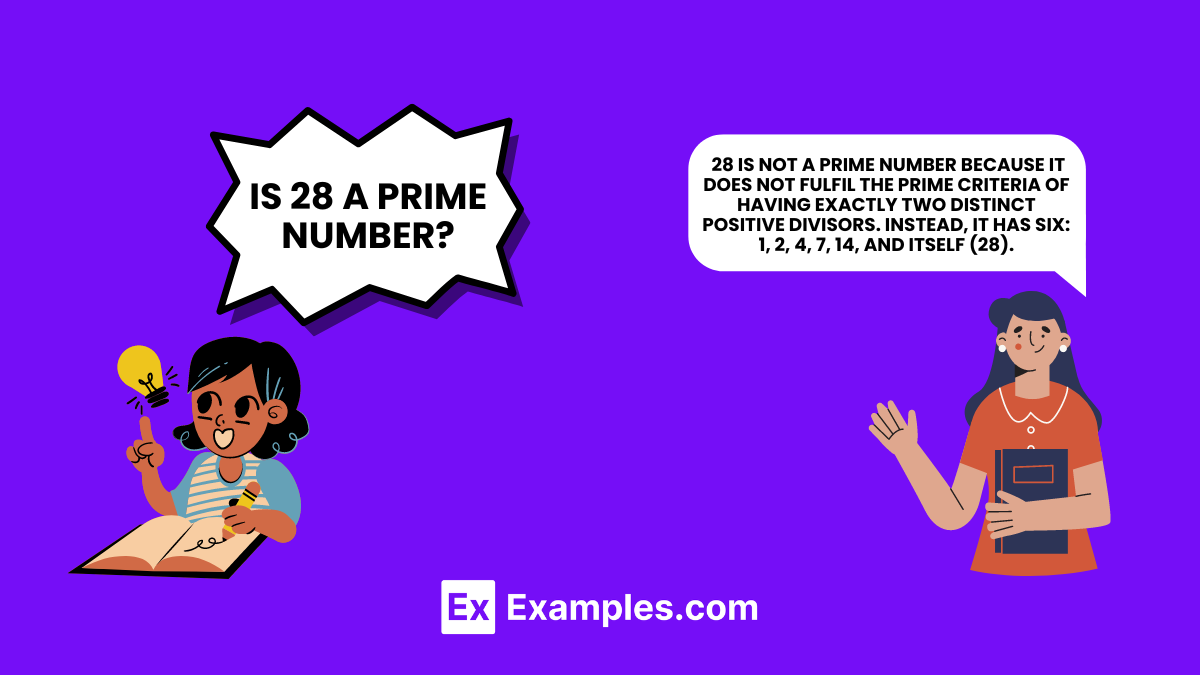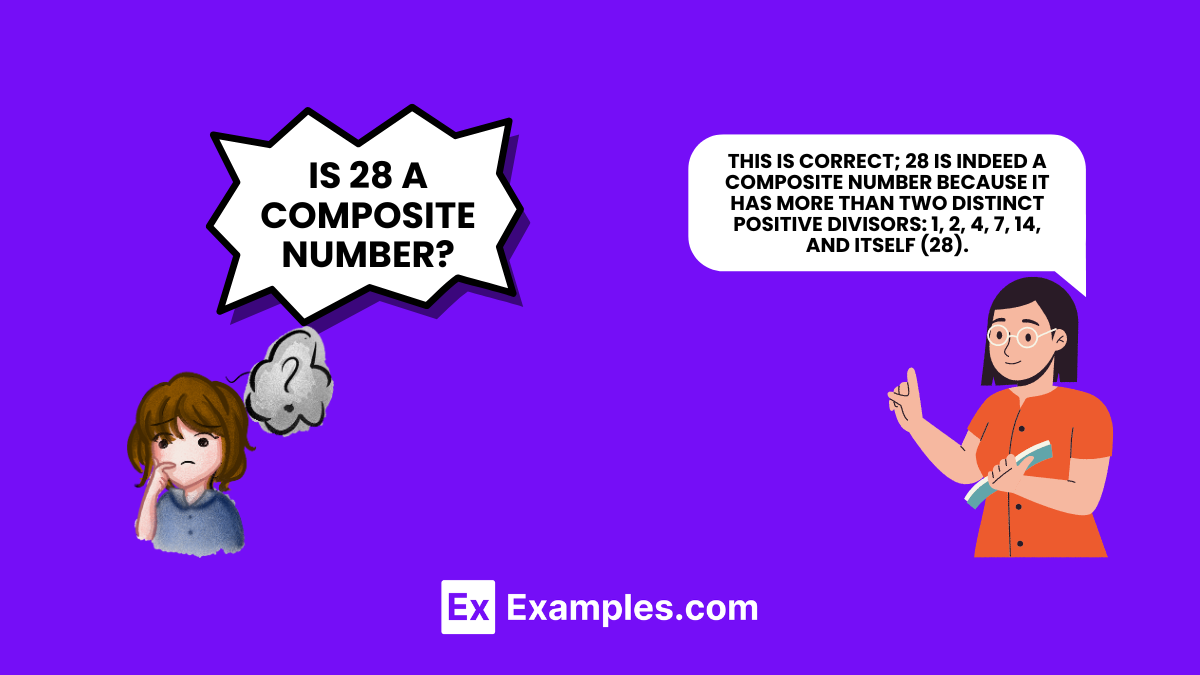Is 28 a Prime Number or Composite Number [Why & Why not Detailed Guide]
Is 28 a Prime Number?
No – 28 is not a prime number.
Why No: 28 is not a prime number because it does not fulfil the prime criteria of having exactly two distinct positive divisors. Instead, it has six: 1, 2, 4, 7, 14, and itself (28). See Prime number checker
Is 28 a Composite Number?
YES – 28 is a Composite Number
Why Yes: This is correct; 28 is indeed a composite number because it has more than two distinct positive divisors: 1, 2, 4, 7, 14, and itself (28).
Problem Statements
| Property | Answer |
|---|---|
| Is 28 a prime number? | No |
| Is 28 a composite number? | Yes |
| Is 28 a perfect square? | No |
| Factors of 28 | 1, 2, 4, 7, 14, 28 |
| Multiples of 28 | 28, 56, 84, 112, 140, 168, 196, 224, 252, 280 |
| Cube Root of 28 | 3.04 |
| Square of 28 | 784 |
| Square Root of 28 | 5.29 |
| Is 28 a Perfect Square? | No |
| Is 28 a Perfect Cube? | No |
| Is 28 an Irrational number? | No |
| Is 28 a Rational number? | Yes |
| Is 28 a Real number? | Yes |
| Is 28 an Integer? | Yes |
| Is 28 a Natural number? | Yes |
| Is 28 a Whole number? | Yes |
| Is 28 an Even or odd number? | Yes (28 is an even number) |
| Is 28 an Ordinal number? | Yes |
| Is 28 a Complex number? | Yes (as all real numbers are also complex numbers) |
What are the factors of 28?
The factors of 28 are 1, 2, 4, 7, 14, and 28. Since 28 is not a square number, its factors include 1, 2, 4, 7, 14, and itself. There are no more factors of 28.
What Kind of Number is 28?
- The factors of 28 are 1, 2, 4, 7, 14, and 28.
- 28 is a composite number.
- 28 is not one of the even prime numbers, but it is an even number.
- 28 is considered a significant number in various contexts, including its role as a perfect number.
- 28 is a natural number.
- 28 is a positive integer.
- 28 is a composite number.
- 28 is an even number.
- 28 is a rational number.
- 28 is a whole number.
28 is recognized as a composite number because it has more than two divisors, which distinguishes it from prime numbers that are only divisible by 1 and themselves. The number 28, being a perfect number (the sum of its divisors excluding itself equals the number), holds a unique place in mathematics and various cultural contexts, often associated with harmony and completeness.
FAQS
What is the first 28 prime number?
The first 28 prime numbers form a sequence starting with 2 and including 109 as the 28th prime, showcasing the unique and indivisible nature of these numbers.
Is 28 a perfect number?
Yes, 28 is a perfect number because the sum of its divisors (1, 2, 4, 7, 14) excluding itself equals 28, demonstrating a unique mathematical harmony.





